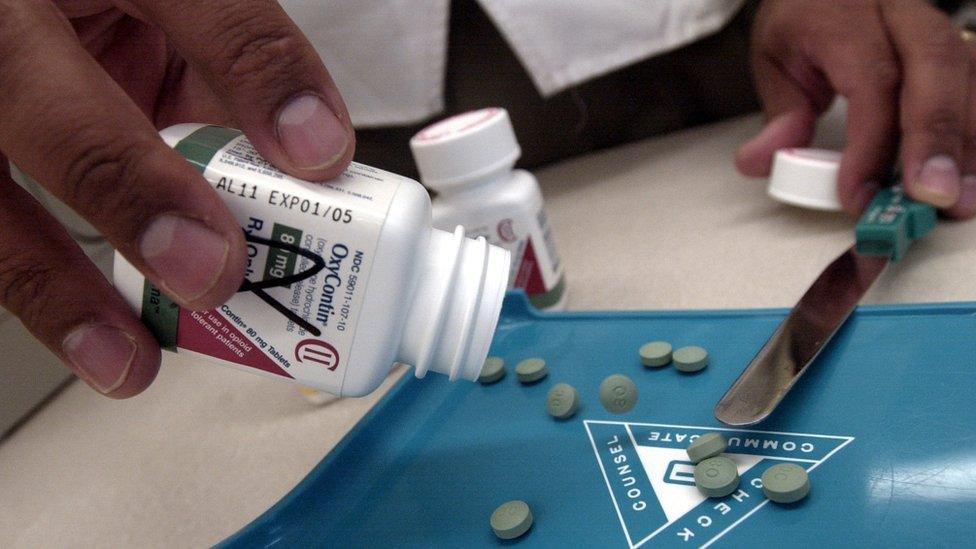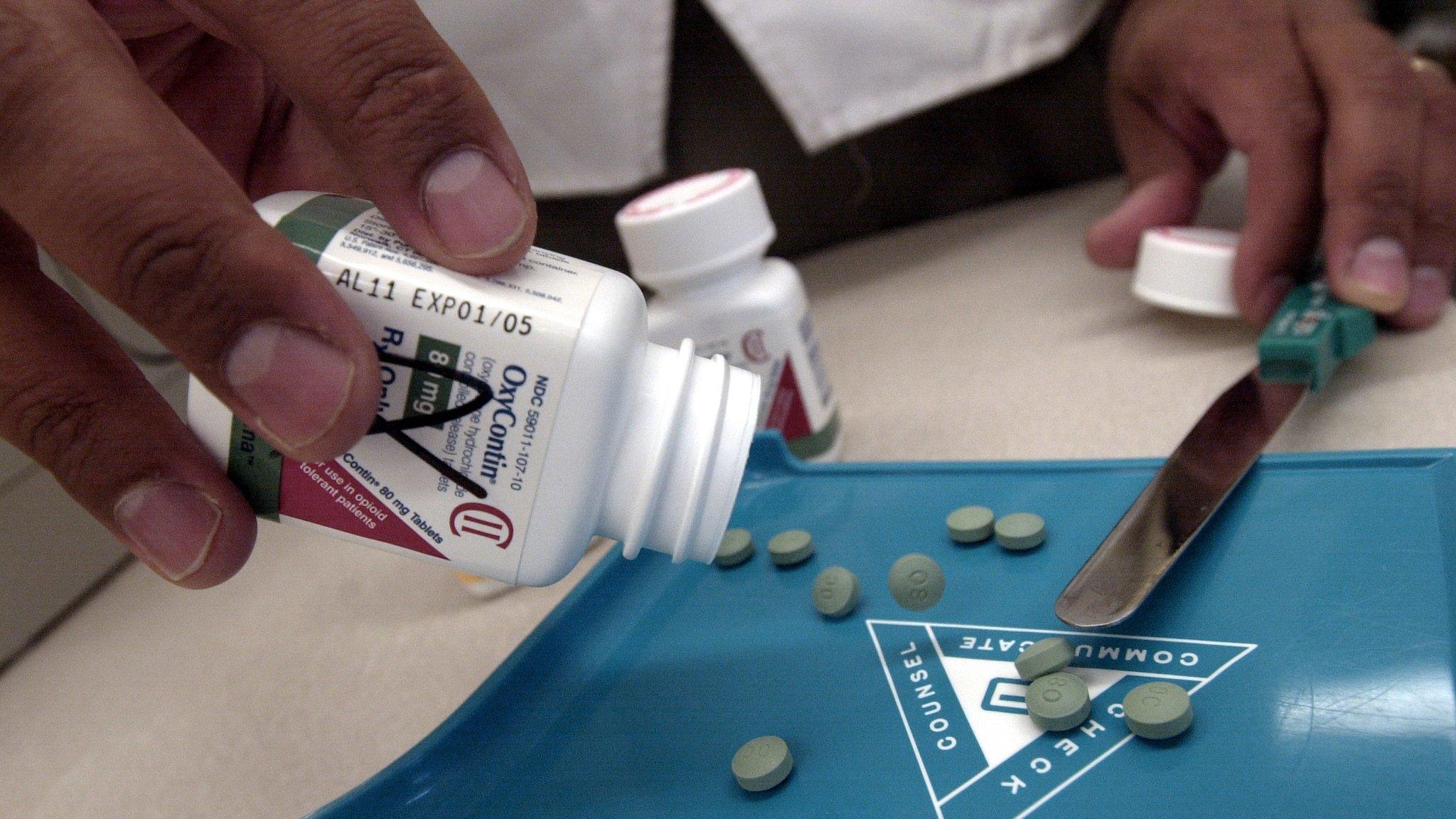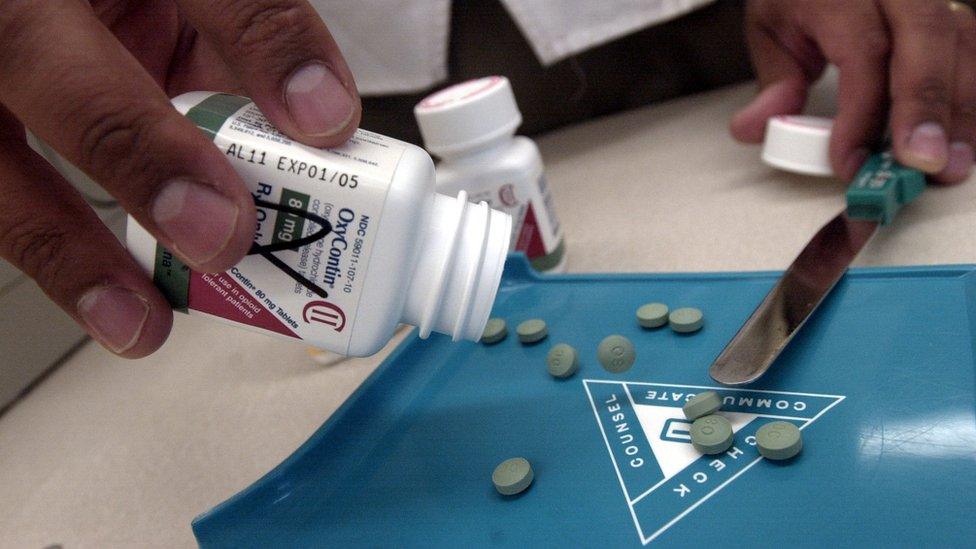OxyContin maker settles Canadian class action for C$20m
- Published

OxyContin is considered a potent and addictive painkiller
The Canadian manufacturer of OxyContin has agreed to pay C$20m (US$14.5m/£11.3m) to settle a long-standing class-action lawsuit.
The claim centred on allegations that Purdue Pharma Canada used deceitful marketing practices for the powerful prescription painkiller.
The proposed resolution brings to a close a legal battle launched in 2007.
Purdue says it makes no admissions of liability by resolving the class action.
A spokeswoman for the pharmaceutical company said on Tuesday the complaints "stemmed from marketing activities that allegedly occurred primarily between 1996 and 2001".
The multi-million dollar nationwide settlement includes $2m(US$1.5m/£1.1m) compensation for provincial health authorities. The settlement still needs to receive approval in Canadian courts.
Lawyer Ray Wagner, whose Halifax-based firm partly oversaw the class action, said on Tuesday that if everything proceeds as planned, the settlement should be finalised by mid-2018 or early 2019.
"The litigation has gone on for 10 years," Mr Wagner said.
"In no way is it going to resolve the harm to individuals so horribly affected by (the drug) but it's at least some resolution and, if approved by the court, some comfort."
He said the lawsuit currently has about 2,000 claimants who say they became addicted to OxyContin after being prescribed the narcotic.
They represent "a real spectrum" of people ranging from labourers to business owners, retired police officers, and athletes.
The class action and resolution is being overseen by a consortium of four law firms, including Mr Wagner's, who filed claims against Purdue in various Canadian jurisdictions a decade ago.
Behind the United States, Canada is the second-largest per capita consumer of opioids.
Canada, like the US, is struggling to get a handle on soaring rates of opioid addiction and abuse.
Health Canada says the opioid crisis is driven both by the emergence of fentanyl and other powerful illicit opioids as well as high levels of addiction to legal painkillers.
The federal health agency says the addictions "have been caused, in part, by inappropriate prescribing practices and poor education about the risks associated with opioids".
In 2007, Purdue and three of its top American executives pleaded guilty in Federal Court in Virginia to "misbranding" by falsely claiming OxyContin was less addictive and less subject to abuse than other pain medications,
They agreed to pay over US$600m in fines and other payments.
Purdue Pharma stopped selling OxyContin in Canada in 2012.
- Published17 December 2016

- Published19 November 2012

- Published18 December 2015
